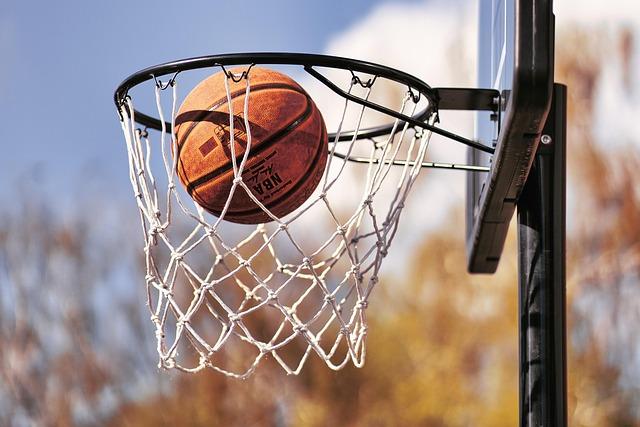Houston Rockets’ Decline in CBS Sports Power Rankings Highlights Team Struggles
Depth Issues Undermine Rockets’ Competitiveness
The Houston Rockets have recently experienced a significant fall in CBS Sports’ power rankings, underscoring persistent challenges related to roster depth and consistency. While the starting five occasionally delivers impressive performances, injuries and inconsistent bench contributions have severely limited the team’s ability to sustain momentum against stronger opponents. Experts emphasize that without dependable support from role players, the Rockets’ core stars face increased fatigue, especially during crucial moments of games.
Management is under mounting pressure to bolster the squad’s depth through targeted trades and enhanced player development programs. Key problem areas identified in recent analyses include:
- Rotation instability caused by injuries
- Insufficient defensive adaptability among bench players
- Irregular scoring output beyond primary scorers
- Below-average rebounding compared to league standards
| Category | Houston Rockets | NBA Average |
|---|---|---|
| Bench Points Per Game | 18.4 | 24.7 |
| Defensive Rating | 112.3 | 107.9 |
| Bench Rebounds Per Game | 6.2 | 9.1 |
Impact of Injuries to Key Rockets Players
Injuries have played a pivotal role in the Rockets’ recent struggles. Star guard Jalen Green has been sidelined with an ankle sprain, missing eight games and disrupting Houston’s offensive rhythm. Similarly, the absence of center Alperen Şengün due to a wrist fracture has weakened the team’s interior defense and rebounding efforts. Veteran guard Eric Gordon has also missed time with a hamstring strain, reducing the team’s perimeter shooting and leadership on the floor.
These setbacks have forced the coaching staff to frequently shuffle rotations, often thrusting younger, less experienced players into prominent roles prematurely. The following table summarizes the injury impact on the Rockets’ lineup and their influence on the team’s CBS Sports ranking:
| Player | Injury | Games Missed | Effect on Team |
|---|---|---|---|
| Jalen Green | Ankle sprain | 8 | Reduced scoring depth and offensive flow |
| Alperen ĹžengĂĽn | Wrist fracture | 6 | Weakened rebounding and interior defense |
| Eric Gordon | Hamstring strain | 4 | Loss of veteran leadership and perimeter shooting |
The cumulative effect of these injuries has diminished Houston’s tactical flexibility and contributed heavily to their slide in the rankings, highlighting the critical importance of player health in maintaining NBA competitiveness.
Examining Offensive Challenges Behind the Ranking Decline
The Rockets’ offensive woes have been a major factor in their recent drop in CBS Sports power rankings. Despite moments of individual talent, the team’s overall scoring efficiency has declined sharply. Shooting percentages, particularly from three-point range and the free-throw line, have fallen below season norms, signaling systemic offensive issues.
Key offensive metrics reveal the following trends over the last five games compared to season averages:
- Field Goal Percentage: Dropped from 47% to 41.8%
- Three-Point Shooting: Declined from 37% to 32%
- Turnovers: Increased from 12 to 16 per game, reducing scoring chances
- Assists: Fell from 25 to 19 per game, indicating less effective ball movement
| Statistic | Season Average | Last 5 Games |
|---|---|---|
| Field Goal % | 47% | 41.8% |
| Three-Point % | 37% | 32% |
| Turnovers Per Game | 12 | 16 |
| Assists Per Game | 25 | 19 |
These offensive difficulties suggest a need for strategic adjustments by the coaching staff to restore offensive rhythm, reduce errors, and optimize scoring opportunities.
Actionable Strategies for Houston Rockets to Regain Momentum
To reverse their downward trajectory, the Rockets must enhance both offensive execution and defensive resilience. Emphasizing improved ball movement and off-ball screens can create better scoring chances by opening driving lanes and facilitating higher percentage shots near the basket. On defense, strengthening communication and rotations will be vital to limit opponents’ transition points and perimeter shooting.
- Utilize pick-and-roll tactics to free up key playmakers and diversify offensive sets.
- Enhance defensive rotations to contest outside shots more effectively.
- Boost rebounding efforts on both ends to generate additional possessions and second-chance points.
- Focus on consistent free-throw shooting to capitalize on scoring opportunities under pressure.
Additionally, optimizing player rotations to maintain energy and incorporating versatile defenders can provide the spark needed to shift momentum. Integrating emerging bench talent and controlling game tempo more effectively will also disrupt opposing offenses and help the Rockets regain control.
| Performance Metric | Current Level | Target Goal |
|---|---|---|
| Offensive Efficiency | 102.3 | 110+ |
| Defensive Rating | 113.7 | 105 or below |
| Rebound Differential | -4.2 | +1.0 |
| Free Throw Percentage | 74.5% | 80%+ |
Conclusion: Monitoring the Rockets’ Road Ahead
The Houston Rockets’ recent descent in CBS Sports’ power rankings reflects a combination of roster depth issues, injury setbacks, and offensive inefficiencies. As the season progresses, the team’s ability to adapt and overcome these obstacles will be crucial in determining their competitive standing. Fans and analysts alike will be watching closely to see how Houston navigates these challenges and whether strategic adjustments can restore their upward momentum in the NBA landscape.

